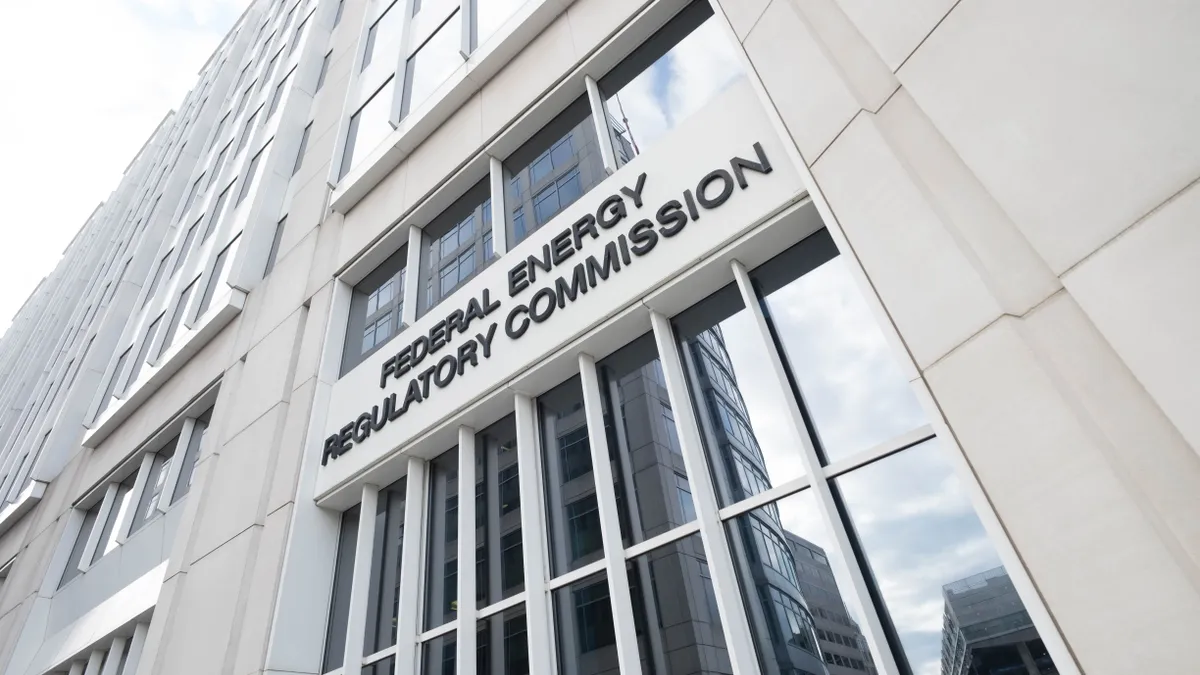Dive Brief:
- Tri-State Generation & Transmission has added a new cooperative member, MIECO, and announced Tuesday that it is now subject to regulation by the Federal Energy Regulatory Commission (FERC).
- In July, the generation and transmission provider began the process to have its rates under FERC jurisdiction, allowing it to avoid oversight from state regulators. Facing member defections over its coal-heavy energy supply, Tri-State also recently announced a plan to add more renewables.
- According to Tri-State, the move aligns its regulation with that of other regional wholesale power providers. The utility also says it is working with states to comply with state resource planning, renewable energy mandates and environmental regulations.
Dive Insight:
Having federal regulators oversee its rates will lead to more consistency, according to Tri-State, along with reducing state oversight. The utility has expressed concerns about the growing calls for such oversight.
An issue brief on FERC regulation published by Tri-State noted "there is political pressure in New Mexico and Colorado for additional Tri-State regulation on facilities and rates. At some point, Wyoming and Nebraska could also assert jurisdiction."
Tri-State provides generation and transmission for cooperative electric utilities in those four states, but the addition of MIECO to the membership roster means only federal regulators will oversee the utility's rates.
While FERC jurisdiction is automatic, according to Tri-State, it does not yet have a tariff on file with the commission. It made a tariff filing on July 23 and expects it to become effective on Sept. 22, but the filing is facing opposition from Colorado, New Mexico and several Tri-State members, Eric Frankowski, executive director of the Western Clean Energy Campaign told Utility Dive.
California-based MIECO, a subsidiary of Marubeni Corp., supplies gas to Tri-State power plants.
"Natural gas generation helps us reliably integrate renewables. Adding MIECO to our membership helps ensure that we have enough firm natural gas pipeline transportation capacity and fuel to supply our existing and any new natural-gas fired power plants," Tri-State CEO Duane Highley said in a statement.
In July, Tri-State unveiled its "Responsible Energy Plan," aimed at reducing the carbon emissions of its generation fleet. Tri-State's relationship with MIECO dates back years, officials said.
MIECO will be eligible for patronage capital allocations and have voting rights at all membership meetings, but will not have a seat on the board of directors. Because MIECO is neither a small electric cooperative nor a government entity, Tri-State said the addition means it is subject to federal rate regulation.
In the past, Tri-State was exempt from FERC oversight as a Rural Utilities Service borrower; more recently, it has not been federally-regulated because it is wholly owned by small cooperatives or public power districts, which the federal commission does not regulate.
But Tri-State officials stressed that FERC rate regulation will not mean it is exempt from state energy rules and regulations.
"Tri-State has and will continue to comply with state environmental, renewable energy and resource planning requirements, and will continue to do so under FERC rate regulation," Highley said. "The issue of FERC rate regulation is unrelated to those areas regulated by the states."
Highley specifically noted the utility remains "committed, and required, to work with all New Mexico and Colorado state regulatory agencies, including the Colorado Public Utilities Commission on resource planning and the Colorado Air Quality Control Commission on carbon reduction planning."
Earlier this year, Colorado lawmakers passed a comprehensive utility bill that subjected Tri-State to oversight by the Public Utilities Commission. Then in July, regulators issued a Notice of Proposed Rulemaking (NOPR) related to Tri-State's electric resource planning.
Clarification: This article has been updated to clarify that while the addition of MIECO automatically makes Tri-State subject to FERC jurisdiction, its tariff filing with the commission has not been approved, and so it is not yet regulated by FERC.















